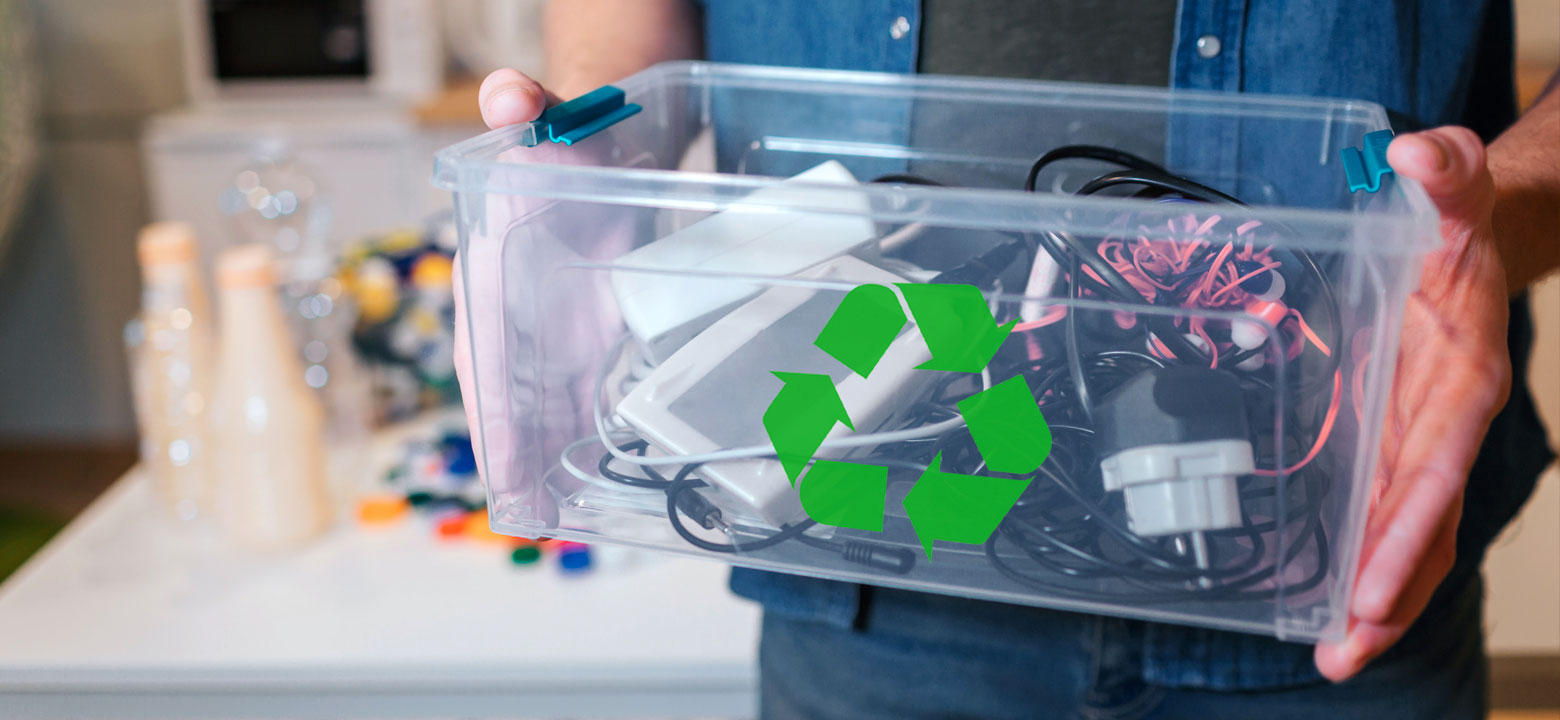
Pretty much everyone has a junk drawer or closet full of old cell phones, dead device batteries, or even obsolete laptops and tablets. With planned obsolescence and no user-serviceable parts, it's not surprising that dead electronics start to build up after a while. Due to the heavy metals used in their construction, it's a bad idea to just toss them in the trash. If you're looking for a way to whittle down your store of old devices, here's how you can safely, sustainably dispose of them:
The best way is electronics recycling. Recyclers will take your old devices and, if they can't be erased, refurbished, and resold, will reclaim the rare metals and other components to be made into new machines. The electronics industry is responsible for a lot of ecological devastation in the pursuit of cobalt, lithium, and other metals necessary to make devices. Recycling helps cut down on the need for virgin material.
Depending on the device, you might be able to make a little money back doing this, too. Newer devices, or those in good condition, can potentially be resold, so recyclers are often willing to offer a monetary incentive.
The only downside to electronics recycling is that it only applies to devices themselves. Peripherals, like keyboards, speakers, and mice, generally aren't accepted.
Do you live near a charity shop? They may be willing to take your old electronics, and will even give you a receipt for a tax deduction. No charity shops? No problem! There are also not-for-profit entities that will take them. Shelters for the homeless or victims of abuse may be able to use outdated (but still working) cell phones for their patrons.
There are also international efforts to help children in underserved areas access technology and the internet. If you have a working computer, tablet, or laptop, they can use it to help these kids learn and develop crucial skills.
There's just one catch here. Unlike recycling, which you can do with nonworking devices, or devices that have had their hard drives destroyed, charity efforts generally only take working products. That means that your data could potentially be stolen if you aren't careful. If you plan on donating your electronics to a charity, make sure you practice good information security and data destruction.
Some tech firms have in-house recycling programs. For things like printer and toner cartridges, they may be able to refill and reuse them. For phones, tablets, batteries, and laptops, they may be able to break them down and turn them into brand new devices. Most of the time, they either offer a convenient drop-off point, or will send you a box or padded mailer so you can just drop your old devices in the mail.
This is often a great way to dispose of peripherals that recycling programs won't take, as well as disposable items like ink cartridges. Check the EPA website for more details on specific manufacturers.
Even if your device's manufacturer doesn't have their own take-back program, they usually have a third-party service that they either partner with, or can point you toward.
If your devices still have some life in them, you might be able to resell them yourself. There are plenty of people seeking out old technology for a variety of reasons—from upcycling, to collecting, to repurposing the parts, and more. As long as you're realistic about the price of your items, you can probably find a buyer.
Some technology actually holds its value well and is worth trying to resell. If your items are seriously vintage (think original Atari), then you can easily find a collector willing to take them off your hands.
If you love technology, outdated and nonworking devices can eventually feel like an albatross around your neck. Nobody likes having to figure out how to store things that do nothing but clutter up their homes, but tossing old computer parts and cell phones in the trash isn't a viable solution either. If you have old devices that you want to get rid of in an environmentally friendly way, then recycling programs, charity initiatives, manufacturer take-back programs, and the secondhand market can help you out.